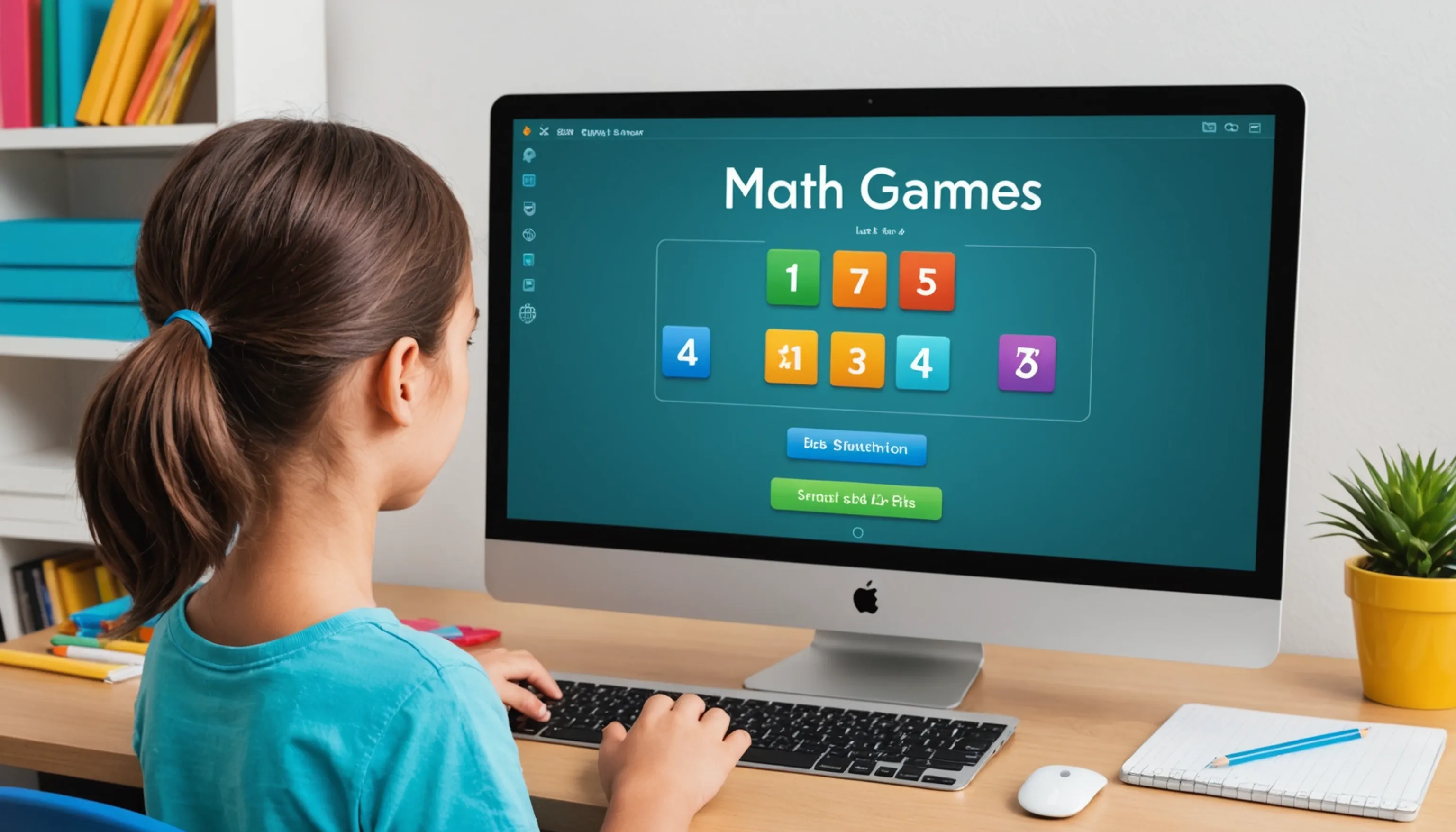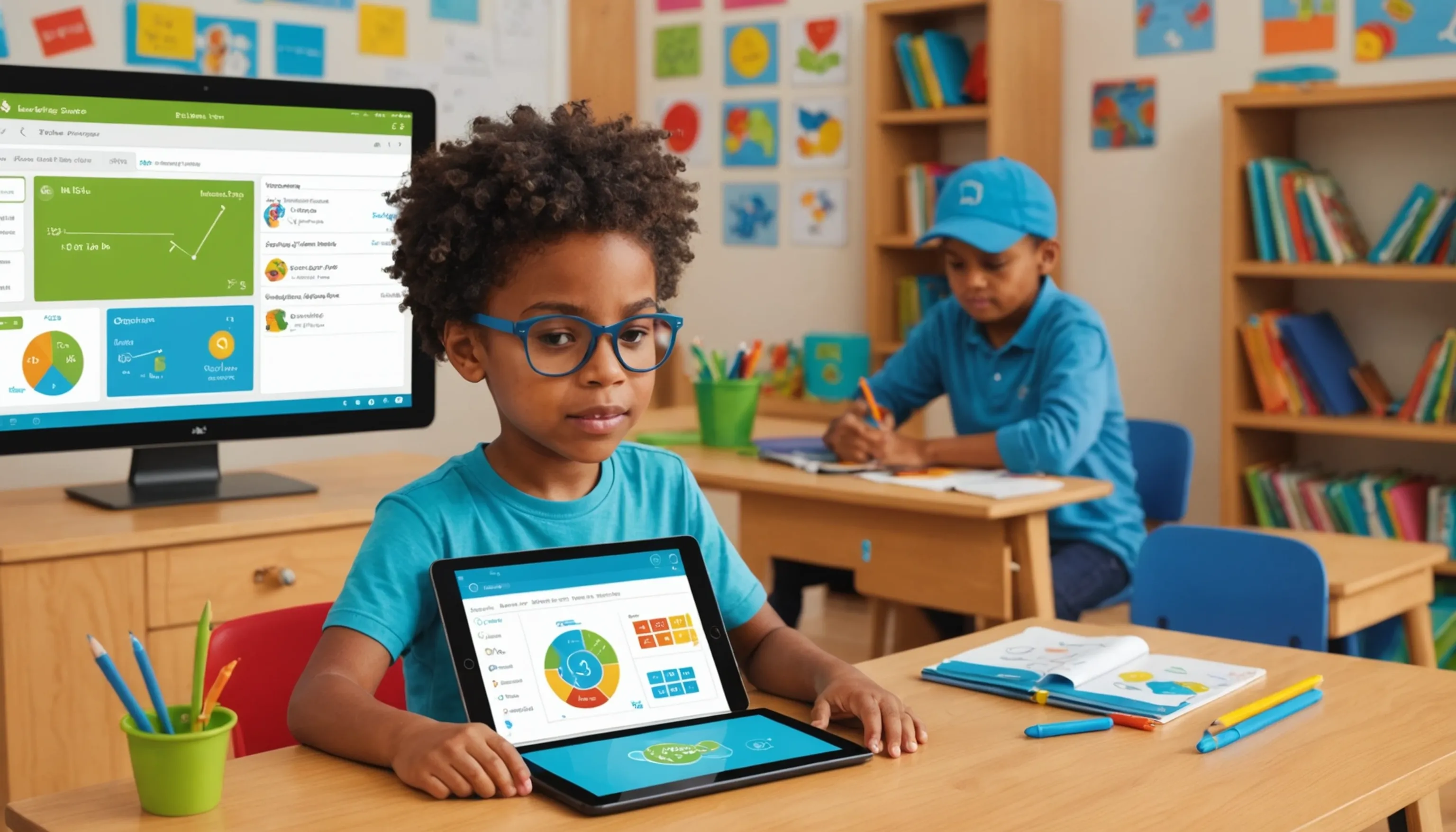Free Math Games for 7th Grade
 HvWHenry van Wagenberg
HvWHenry van Wagenberg
Free Math Games for 7th Graders
Finding free math games for 7th graders can significantly enhance learning while making it enjoyable. These games often cover essential topics like algebra, geometry, and statistics, providing interactive ways to engage students. Utilizing online platforms, kids can access a variety of games that challenge their math skills and promote critical thinking.
From fun quizzes to puzzle-based challenges, these games help in reinforcing classroom concepts and boosting confidence. In addition, many of these resources track progress, enabling parents and teachers to monitor improvements over time.
Benefits of Math Games for Learning
Math games offer numerous benefits for learning, particularly for 7th graders who are navigating more complex mathematical concepts. One of the primary advantages is that they make learning more engaging and enjoyable. When students play games, they are more likely to stay focused and motivated, which can lead to better retention of information.
Additionally, math games can help in developing critical thinking and problem-solving skills. Through challenges and puzzles, students learn to approach problems from different angles and find solutions. This kind of interactive learning encourages creativity and enhances cognitive skills.
Another significant benefit is the opportunity for immediate feedback. Many online math games provide instant results, allowing students to understand their mistakes and learn from them. This real-time feedback can be crucial in helping them grasp difficult concepts.
Math games also promote collaboration and social skills when played in groups. Students often work together to solve problems, fostering teamwork and communication. This interaction can help build a supportive learning environment where students feel comfortable sharing ideas and strategies.
Lastly, incorporating math games into the curriculum can help bridge the gap between theoretical knowledge and practical application. They allow students to see the relevance of math in real-world scenarios, making learning more meaningful.
Types of Free Math Games Available
There are various types of free math games available for 7th graders, catering to different learning styles and math topics. Understanding these categories can help parents and teachers select the best games for their students.
1. Online Math Games: Many websites offer interactive math games that cover topics like fractions, decimals, and algebra. Platforms like Khan Academy and Math Playground provide engaging activities that adapt to the skill level of the player, ensuring that students are challenged appropriately.
2. Puzzle Games: These games often involve solving math-related puzzles or riddles. They encourage critical thinking and logical reasoning. Examples include Sudoku and logic puzzles, which require players to apply mathematical concepts in a fun way.
3. Board Games: Traditional board games can also be adapted for math learning. Games like Monopoly can teach about money management and basic arithmetic, while custom-made games can focus on specific math skills.
4. Mobile Apps: There are numerous free math apps designed for 7th graders that offer games and challenges on-the-go. Apps like Prodigy and DragonBox make learning math concepts enjoyable and accessible from smartphones and tablets.
By exploring these types of games, parents and teachers can provide a diverse range of learning experiences that keep students engaged and motivated in their math studies.

Top Websites for Free Math Games
Several websites offer a fantastic selection of free math games tailored for 7th graders. Here are some of the top platforms:
- Khan Academy: Provides comprehensive math resources, including interactive games that adapt to individual skill levels.
- Math Playground: Features a variety of math games, puzzles, and instructional videos that make learning engaging.
- IXL Learning: Offers personalized practice in math with fun games and challenges, though some features may require a subscription.
- Coolmath Games: Focuses on fun math games that promote problem-solving and critical thinking.
These websites are excellent resources for enhancing math skills while having fun.
Khan Academy
Khan Academy is a premier online educational platform that provides an extensive range of resources, particularly in mathematics. Designed for students of all ages, it offers a wealth of free math games specifically tailored for 7th graders. The platform's interactive approach allows students to learn at their own pace, making it an excellent tool for reinforcing classroom concepts.
One of the standout features of Khan Academy is its personalized learning dashboard. This dashboard allows students to track their progress and receive tailored recommendations based on their performance. As they complete exercises and games, they earn points and badges, adding an element of gamification that keeps them motivated.
The math games available on Khan Academy cover a variety of topics, including algebra, geometry, and statistics. These games are designed to challenge students while providing immediate feedback, helping them identify areas that need improvement. For example, students can practice solving equations or working with fractions through engaging activities that feel more like play than study.
Khan Academy also offers instructional videos that explain complex math concepts in an easy-to-understand manner. This dual approach—combining games with video explanations—ensures that students not only practice but also grasp the underlying principles of mathematics.
Overall, Khan Academy is an invaluable resource for parents and teachers looking to enhance their students' math skills through fun and interactive learning experiences.
Math Playground
Math Playground is a highly engaging website that offers a plethora of free math games designed specifically for students in various grades, including 7th grade. The platform combines fun with educational content, making math learning enjoyable and effective. With a wide range of games, Math Playground caters to different learning styles and interests, ensuring that every student can find something that resonates with them.
One of the key features of Math Playground is its diverse selection of games that cover essential math topics such as fractions, decimals, geometry, and problem-solving. These games are not only entertaining but also educational, helping students practice and reinforce their math skills in a low-pressure environment.
In addition to games, Math Playground offers interactive math videos and puzzles that further enhance the learning experience. These resources provide students with different ways to approach mathematical concepts, making it easier to understand challenging topics.
Furthermore, Math Playground includes problem-solving challenges that encourage critical thinking. Students can work through various scenarios and apply their math knowledge to find solutions, promoting a deeper understanding of the subject.
The website is user-friendly and accessible, allowing students to navigate through different games and resources easily. Parents and teachers can also use Math Playground to supplement classroom learning and provide additional practice at home. Overall, Math Playground is an excellent resource for fostering a love of math in students while helping them develop essential skills.

IXL Learning
IXL Learning is a comprehensive online platform that provides a robust selection of educational resources, focusing on math and other subjects for students of all grades, including 7th grade. Known for its personalized learning approach, IXL offers a variety of free math games and interactive activities designed to enhance students' understanding of essential concepts.
One of the standout features of IXL is its adaptive learning technology. As students work through math problems and games, the platform adjusts the difficulty level based on their performance. This ensures that learners are consistently challenged while receiving immediate feedback on their answers, which is critical for identifying areas needing improvement.
IXL covers a wide range of 7th-grade math topics, including algebra, geometry, statistics, and more. The platform breaks down each subject into manageable skills, allowing students to focus on specific areas. The interactive games and activities engage students while reinforcing their knowledge in a fun and dynamic way.
Moreover, IXL provides progress tracking features that allow both parents and teachers to monitor student performance. This data can be invaluable in identifying trends, strengths, and weaknesses, enabling targeted support to enhance learning outcomes.
While some features of IXL require a subscription, many schools provide access to their students, making it a fantastic resource for reinforcing classroom learning. Overall, IXL Learning offers an effective and enjoyable way for 7th graders to improve their math skills while building confidence in their abilities.
How to Use Math Games Effectively
To use math games effectively, it's essential to integrate them thoughtfully into your child's learning routine. Here are some tips:
- Set Clear Goals: Before starting, define what math skills your child needs to improve. This will help you choose the right games that align with their learning objectives.
- Balance Play with Study: While games are fun, they should complement traditional study methods. Encourage your child to alternate between game time and focused math practice.
- Encourage Reflection: After playing, discuss what they learned. Ask questions about strategies used and challenges faced, which reinforces understanding.
- Monitor Progress: Keep track of their performance in the games. Most platforms offer insights that can help you identify areas needing additional focus.
- Make it Social: Play together or organize game nights with friends to enhance motivation and teamwork.
By following these strategies, math games can become a powerful tool for enhancing your child's math skills.
Incorporating Games into Homework
Incorporating math games into homework can significantly enhance a student's understanding and retention of mathematical concepts. Here are some effective strategies for integrating games into your child's homework routine:
1. Choose Relevant Games: Select games that align with the topics covered in class. For example, if your child is learning about fractions, find games that focus on fraction operations. This ensures that the gameplay reinforces what they're currently studying.
2. Set Specific Goals: When assigning game-based homework, establish clear objectives. For example, aim for your child to complete a certain number of levels in a game or achieve a specific score. This adds structure and purpose to their gameplay.
3. Encourage Reflection: After playing, ask your child to summarize what they learned from the game. This could be done through a short written reflection or a discussion. Reflection helps solidify their understanding and connects the game experience with academic concepts.
4. Mix It Up: To maintain interest, rotate between different games and platforms. This variety not only keeps homework exciting but also exposes your child to various problem-solving strategies.
5. Use Collaborative Games: Encourage your child to play games with friends or family. Collaborative gameplay promotes social interaction while learning, making it a fun, shared experience.
By thoughtfully incorporating math games into homework, parents and teachers can create a more engaging and effective learning environment.
Setting Up a Game Night
Setting up a game night focused on math games can be a fun and educational way to boost your child's math skills while creating memorable family moments. Here are some steps to organize an effective math game night:
1. Choose the Right Time: Pick an evening when everyone is available and relaxed. Avoid busy nights to ensure that everyone can fully participate without distractions.
2. Select Engaging Games: Gather a mix of math games that cater to different skill levels and interests. Include both digital games and traditional board games that emphasize math concepts, such as fractions, geometry, or problem-solving. This variety keeps the night exciting and inclusive for all participants.
3. Create a Comfortable Environment: Set up a cozy area with enough space for everyone to play comfortably. Provide snacks and drinks to keep energy levels high and create a relaxed atmosphere.
4. Establish Team Play: Consider forming teams to promote collaboration and friendly competition. This can enhance social interaction and encourage teamwork as players work together to solve math problems.
5. Reflect on the Experience: After the games, take some time to discuss what everyone learned. Encourage participants to share their favorite moments or strategies used during the games. This reflection reinforces learning and highlights the educational value of the night.
By setting up a game night centered around math, you can turn learning into a fun family activity that strengthens math skills and fosters a love for learning.
